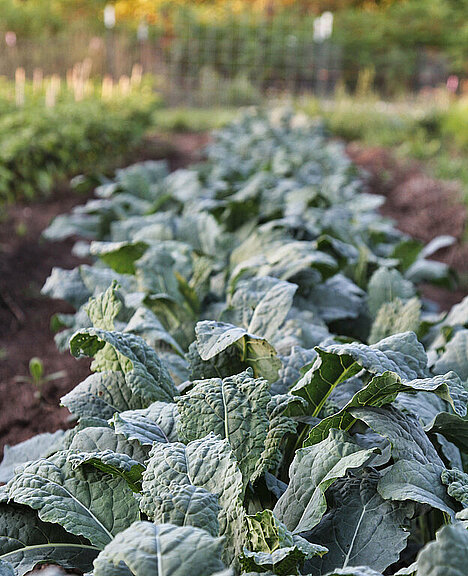Palm kale

Palm kale, also known as black cabbage or Tuscan cabbage, is a vegetable from the cabbage family. It has long, narrow leaves that grow on a stalk and are reminiscent of palm trees. Palm kale originally comes from the Mediterranean region and is mainly grown and eaten in Italy. However, it is also becoming increasingly popular in Germany, both as an ingredient in delicious dishes and as food for dogs. But what makes palm kale so healthy and how can you offer it to your four-legged friend? Here you can find out everything you need to know about this green leafy vegetable.
The benefits of palm kale for dogs
Palm kale is rich in vitamins, minerals and antioxidants that support your dog's immune system and cellular health. It contains vitamins A, C, K, B6, folic acid, calcium, iron, magnesium and potassium, among others. It also provides fiber, which aids digestion and increases the feeling of satiety. Palm kale has a low calorie and fat content and can therefore also help overweight dogs to lose weight.
Palm kale can be fed raw or cooked. Raw it has a more intense flavor and more nutrients, but it can also be harder to digest. Cooked, it becomes milder and softer, but it also loses some of its vitamins. You can add palm kale as a side dish to meat or other vegetables or puree it and mix it into the food. Make sure that you only use fresh and unsprayed palm kale and wash it thoroughly before giving it to your dog.
The disadvantages of palm kale for dogs
Although palm kale is healthy, it should not be fed in excessive quantities. Like all types of cabbage, it contains mustard oil glycosides, which can cause bloating or diarrhea in sensitive dogs. A high consumption of palm kale can also impair thyroid function, as it binds iodine and therefore disrupts the hormone balance. This is particularly true for dogs with an existing hypothyroidism or iodine deficiency disease.
To avoid possible side effects, you should only feed palm kale in small quantities and not more than once or twice a week. Start with a small amount and observe how your dog reacts to it.
Palm kale is a healthy vegetable that has many benefits for your dog. It provides him with important vitamins, minerals and antioxidants and can help him to maintain or reduce his weight. However, you should only feed palm kale in moderation and pay attention to possible intolerances. If you follow these tips, you can offer your dog a tasty change and promote his health.
If you notice any signs of hypersensitivity or poisoning in your dog, you should see your vet immediately. We are not a substitute for a vet, but we try to be as accurate as possible. Every dog reacts differently and we recommend you get a second opinion or consult your vet if in doubt.
Stay healthy and take good care of your four-legged friend!😊